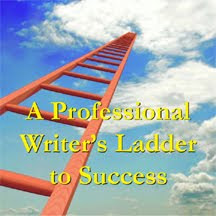How Much is Your Work Worth?
I received an e-mail solicitation this week from a woman with a foreign-sounding name. She was not anyone I know or have met, and I'm not sure how she got my e-mail address. But her offer was this:
- Article writing - 100 words @ 1USD
- Blog writing - 100 words @1USD
- Free article submissions to 10 unique PR article sites, 10 directories & 10 social bookmarks
Anybody who's worked with copywriters before, or who has paid for quality copywriting, knows that you can't get it for $1. Good copywriting requires skills and knowledge. It takes time for research, development of target audience profiles, analysis of the product/service being promoted, and a certain amount of "gel time" as the thoughts percolate in the copywriter's brain. And that's all before you even write the first word of copy itself, which requires certain skills in wordsmithing to pull together all the background work into persuasive copy that sells. It could take several weeks, at best, to accomplish. And that copy could be worth millions of dollars to the company buying it...certainly worth every penny of the thousands of dollars it should have cost them to obtain it.
I replied to that hapless spam e-mailer, expressing the opinion that her offer cheapens our entire industry and hurts us all. It makes prospects think, "Well, if this company is offering copy for $1, why should I pay any more?" They don't understand the copywriting process, nor do they respect the amount of work or training that go into writing truly quality copy. If this company is doing it right, they can't possibly stay in business and offer copywriting for that price...even if the writers are all working in a sweatshop environment and writing in broken English.
Writers, if you're going to enter this business, do your due diligence first. Find out what rates you should be charging. Don't put yourself out there as offering the same product as someone with years of experience, then undercut their prices. We already have enough clients who don't respect what we do because they don't appreciate the effort and training it takes. They don't recognize the difference between good and bad copy. They want to pay us less than we can afford to live on. When you come into our industry and offer bargain-basement prices because you're just starting out and don't have a lot of experience, it reinforces their perception that what we do isn't worth much. This hurts the entire industry, along with your future earning potential as a copywriter.
Do your career and the industry a favor: before you go out on your own, get a job where you're writing for someone else. Work with different types of clients and learn what it takes to write successful copy. You don't learn it all in school, even with an advanced degree. Practical experience is essential. Develop some marketing skills beyond your writing skills so that you understand how to do audience and product research. Get involved in the local chapters of some industry organizations such as the American Marketing Association, International Association of Business Communicators, Public Relations Society of America, or the American Advertising Federation to develop your professional skills, and seek additional training whenever you can. While you're drawing a salary for that work, start building the nest egg you'll need to start your own copywriting business one day. Then you'll have what you need to delivery quality copy to your clients.
If you're considering becoming a professional, self-employed writer, my series of e-books, A Professional Writer's Ladder to Success, was designed to help you. It walks you through planning for, researching, and launching a successful business as a professional writer. Each "rung" of the ladder builds on those before it to help you prepare your very own Ladder to Success Action Plan. Whether you choose to pursue being a copywriter, a book writer, a publicist, or any number of other types of writer you can be, following such a course is an important step you can't overlook.










